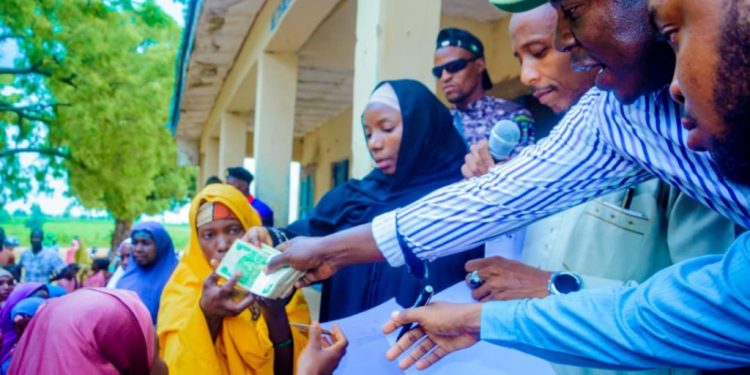The Niger State Government has disbursed N250 million to support 2,500 women entrepreneurs in Kontagora Local Government Area, giving each beneficiary N100,000 to grow or strengthen their small businesses.
The scheme, implemented through the Office of the Special Adviser to the Governor on Social Investment Programmes, reflects the administration’s commitment to women’s empowerment as a strategy for economic growth. Community leaders, women leaders, and religious leaders played a key role in selecting beneficiaries, ensuring that support reached those most in need. Among those empowered were Fulani women, widows, women living with disabilities, and women from low-income households—groups that often face the greatest barriers to financial inclusion.
For many of the women, the grant is more than just financial relief; it represents a chance to secure a more stable livelihood. Beneficiaries such as Hadiza Bala and Larak Isah from Kawo Village said they plan to reinvest the funds into their existing businesses, a move they believe will expand their income and improve their families’ welfare. Their stories highlight how direct support can quickly translate into real economic impact for households at the grassroots.
Beyond the individual stories, the initiative speaks to a larger shift in policy thinking. Across Nigeria and Africa, women play a critical role in the informal economy, running small-scale businesses that sustain families and communities. Yet they remain largely excluded from mainstream financial systems, facing limited access to credit, training, and government support. By deliberately targeting women who are often left behind, Niger State’s empowerment programme addresses both poverty reduction and gender inclusion.
The intervention also links economic empowerment with wider community development. Access to capital enables women to invest not only in their businesses but also in education, health, and nutrition for their children, creating a ripple effect across households and neighborhoods. In this way, initiatives like this contribute directly to poverty reduction and the promotion of social stability.
Observers note that such programmes could also have long-term political and social impact. When women are economically empowered, they gain greater visibility in decision-making spaces, from community associations to political movements. For women living with disabilities or those marginalized by cultural and economic barriers, the programme offers an opportunity to break cycles of dependency and exclusion.
While the grants provide immediate relief, the sustainability of such empowerment initiatives will depend on continued follow-up. Experts argue that access to mentorship, financial literacy training, and cooperative networks will be essential for beneficiaries to maximize the impact of the funds. Without such support, there is a risk that some women may struggle to scale their businesses beyond survival level.
Still, the significance of this intervention cannot be overstated. At a time when inflation and economic pressures continue to weigh heavily on households across Nigeria, targeted support for women-led small businesses sends a strong signal of inclusivity. By investing in women at the grassroots, Niger State is not only helping families to survive but also laying the foundation for broader economic resilience.
For other African governments and development stakeholders, this initiative offers a lesson: small grants, when channeled directly to women entrepreneurs and backed by community structures, can serve as powerful tools for promoting economic participation and social inclusion. As more states and regions embrace such policies, the long-term outcome could be a stronger network of women-led enterprises contributing to national growth.










